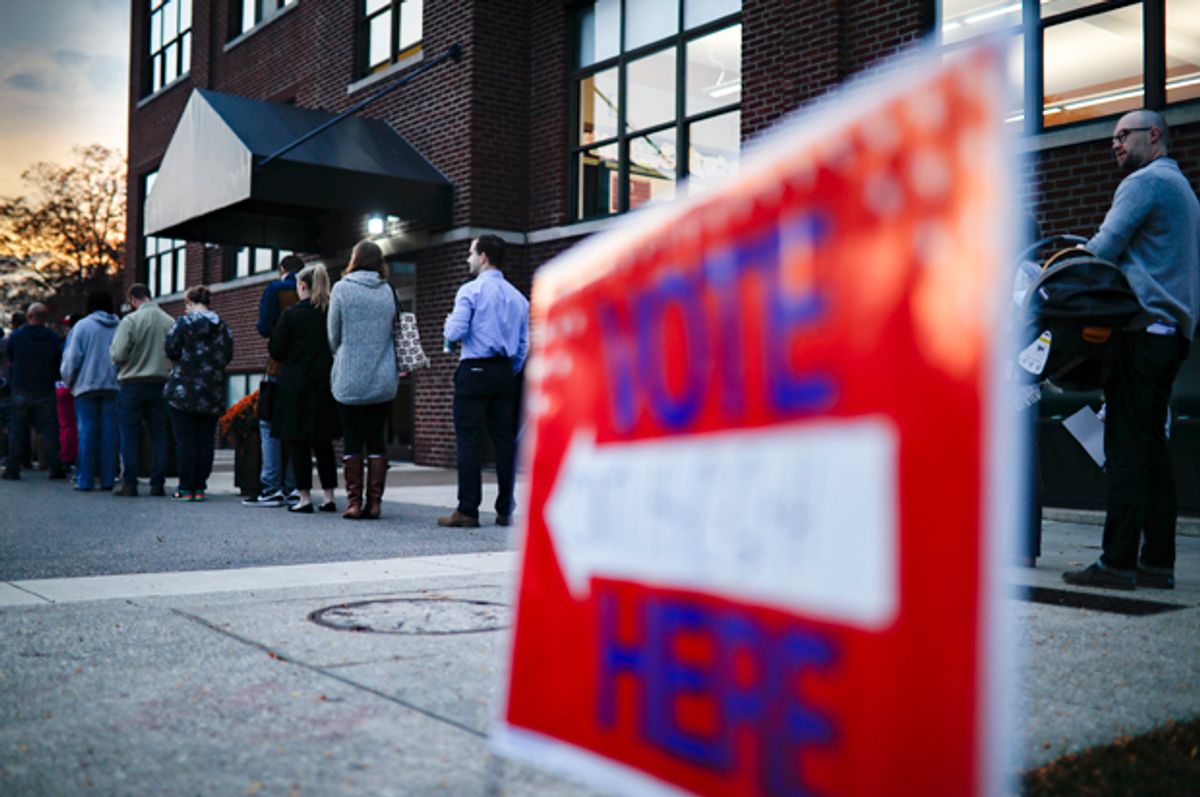State legislators in Ohio are working to make it more difficult for voters to make changes to the state’s constitution.
House Joint Resolution 19, which was proposed after the midterm elections, would require proposed constitutional amendments to be approved with 60 percent of the vote instead of a simple majority.
The legislation is aimed at encouraging voter-backed state laws instead of amendments to the constitution by lowering the number of signatures required to get on the ballot and banning lawmakers from immediately amending or repealing those laws. Lawmakers would still be able to change or repeal laws later, unlike with a constitutional amendment.
"We’re trying to steer people away from the constitutional amendments and toward the statute,” state House Speaker Ryan Smith told the Cincinnati Enquirer.
Smith is a co-sponsor of the legislation, as are Republican Rep. Sarah LaTourette and Democratic Rep. Glenn Holmes. The bill comes after a number of a number of amendments, funded largely by out-of-state backers with deep pockets, have failed to pass, including amendments to legalize gambling, legalize marijuana and reform the state’s criminal justice system.
Although most of those amendments failed to pass, the state legislature took up issues like gerrymandering and medical marijuana after ignoring them for years.
In November, an amendment to reduce criminal penalties for low-level drug offenders and lower the prison population failed to pass, gaining just 37 percent of the vote.
“We are trying to make sure that our constitution is not for sale and making sure that outside groups cannot buy their way into our constitution,” LaTourette said. “But at the same time, we’re trying to make sure that citizens’ voices continue to be heard.”
The legislation has a long way to go. It would need to be passed by three-fifths of both chambers of the state’s legislature and would also have to be approved by voters in May.
The League of Women Voters in Ohio vowed to fight the legislation.
“We think it’s already very difficult to get constitutional amendments on the ballot and it should not be made harder,” league Executive Director Jen Miller told the Enquirer.
Under the law, groups would have only 180 days to collect enough signatures -- 10 percent of the votes in the governor’s race in the previous election -- to get amendments on the ballot, while state laws would require 5 percent of the gubernatorial vote.
The legislature would be banned form amending, repealing or suspending the law for one year after the law is enacted.
Democratic state Rep. Bride Rose Sweeney ripped the proposed plan as anti-democratic.
“This dangerous new restriction on democracy would silence citizens’ voices and further tilt the balance of power to corporate, out of state special interests who have the power and money to change our constitution under this misguided plan,” Sweeney said in a statement.
The League of Women Voters warned that the move would likely not affect well-funded campaigns but grassroots groups would be severely limited. Miller noted that the signatures would have to be collected between November and April, the coldest part of the year, while volunteer-run groups collect most of their signatures after April at festivals during the spring and summer. The previous deadline was July.
The group is calling for lawmakers to be barred from amending voter-passed laws for at least three years and up to 10 years.
“Ohio citizens need the ability to make changes to law if the Ohio legislature is not being responsive to the public,” Miller said. “Issues like fair districts, campaign finance reform, and other good governance policies are often passed by the people, not legislatures.”



Shares